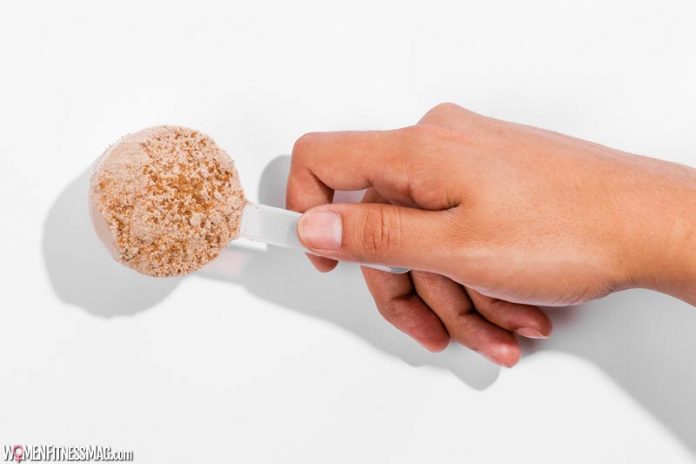
How to Choose the Best Protein Powder for Your Needs : Protein is a vital macronutrient that benefits us in many ways. For example, it helps us to be strong and build muscle mass, feel full and have energy, reduce cravings, and support our bones, hair, skin, and nails.
However, many of us don’t get enough protein in our diets, especially if we’re vegetarian or vegan and not conscious of getting enough plant-based protein for our daily needs. This is where a quality protein powder can be a big help. With so many products available, though, it can be tricky deciding on the best option. Follow some tips to choose the best powder for your personal needs.
Know Your Goals Upfront
Before you start shopping for protein powders, get clear about what you want to achieve from adding them to your diet. What specific goals do you have in mind? For example, are you making up for the fact that you don’t otherwise consume much protein, or are you keen to build muscle, lose weight, add weight, or achieve something else?
Understand the Different Types of Powders
Next, wrap your head around the different types of powders on the market these days. One of the most commonly sold ones is whey protein. Good for general day-to-day use and after workouts, this contains all the essential amino acids the body needs and digests easily.
A related option is casein protein which, like whey, stems from dairy. Casein offers similar benefits to whey but digests more slowly. As such, it’s not ideal for immediate post-exercise recovery but is optimal for balanced release throughout the day.
Another popular protein powder choice is soy. A nutrient-dense, complete source of protein, it’s said to provide health benefits for some people, such as easing hormonal symptoms, reducing high cholesterol, and assisting bone mass growth. It’s a top option for vegans and vegetarians.
Other options for those who want to avoid animal products include brown rice protein, hemp protein, and pea protein. Brown rice protein is gluten-free and plant-based but deficient in some key amino acids as it’s not a complete protein. Hemp protein, derived from cannabis plant seeds, has similar pros and cons but also acts as a prime source of omega-3 fatty acids. Pea protein is considered one of the best plant-based options as it boasts the closest offering to a complete amino acid profile. It’s highly digestible, too.
Read Labels Carefully
When choosing the best protein powder for your needs, stop and examine the labels on each product. This area is where you can find more elements to set products apart. For example, it pays to choose a powder with more natural ingredients and fewer ones, such as seven to ten, rather than dozens, especially when many of those elements might be ingredient names you’ve never heard of nor can pronounce.
If a product seems too good to be true, price-wise, looking at the label might clue you in as to why. When goods are much cheaper than those offered by the major brands, it generally comes down to the quality and processing of the ingredients, as well as percentages. When buying a protein powder, the first ingredient should always be the main protein listed in the product description.
When examining labels, keep your goals and specific needs in mind. For example, if you want to build muscle, a protein powder with a high biological value, where the protein is easily absorbed and utilized, will be your best bet. If it’s weight loss you want, or if diabetic, steer clear of powders full of added sugars or sweeteners. It’s also wise to avoid powders with high levels of carbohydrates.
Vegans and those who are lactose intolerant will want to avoid protein powders with added dairy products. Read the label to check for not only whey or casein but also milk proteins and lactose sugars. If you have coeliac disease, irritable bowel syndrome, Crohn’s disease, or other gastrointestinal problems, you’ll want to avoid products containing things such as gluten, artificial sweeteners, caffeine, etc.
Research Brands and Products
Lastly, research the brands you’re considering buying from to discover the credibility of each company. Some manufacturers become known for spouting unrealistic claims and making promises they can’t keep. Plus, check out testimonials and reviews on specific goods, too, as products from a single company can sometimes vary considerably in quality and results.
Protein powders are a staple part of many people’s diets due to the array of benefits enjoyed from consuming them. However, it’s essential to take your time researching and buying these products, so you get the right fit for your needs. Every body and situation is different, after all.
Related Videos about How to Choose the Best Protein Powder for Your Needs :
How To Pick The Best Protein Powder (CHOOSE WISELY!)
How To Choose The Right Protein Supplement For You ?
3 Top Tips for Picking Whey Protein
Concentrate vs Isolate | Which Protein Shake is Best?
How to Choose the Best Protein Powder for Your Needs
which protein powder is best for me quiz, best protein powder for building muscle, best protein powder in india, best protein powder for lean muscle, best protein powder for weight loss, best protein powder for weight gain, best protein powder for women, how to choose a protein powder,
